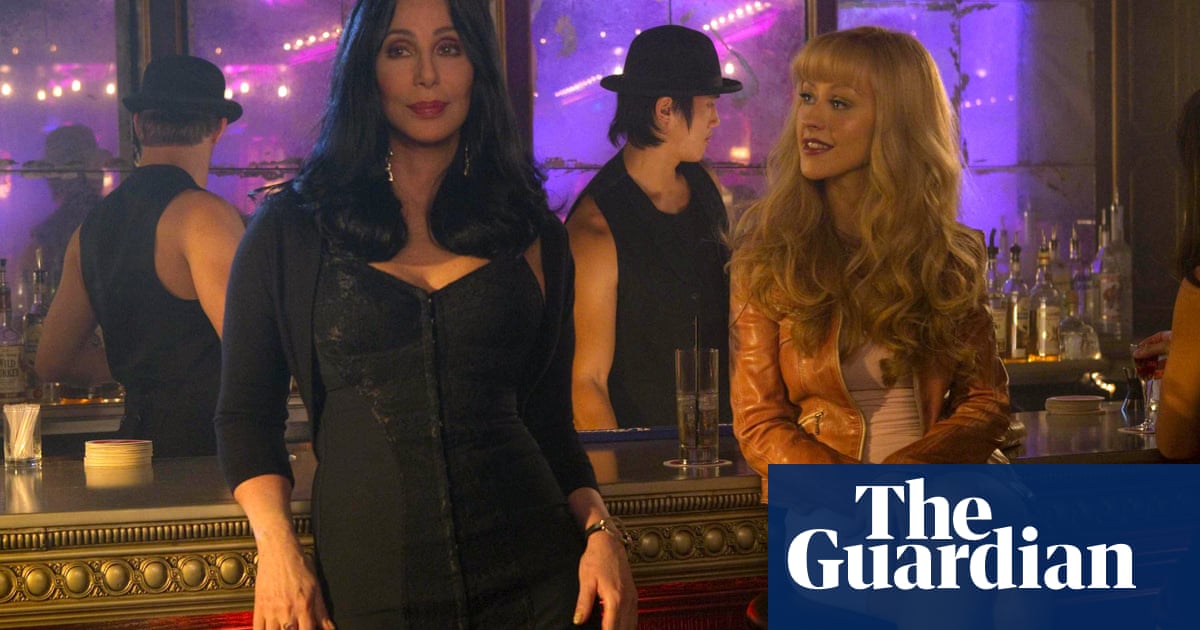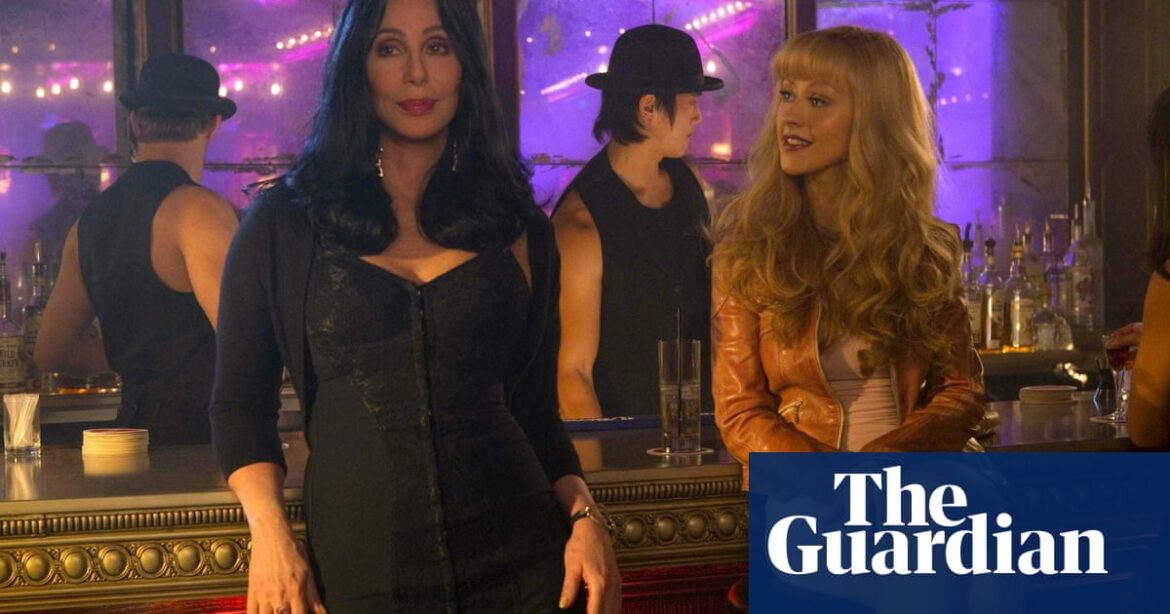
Unlike many of my fellow cinephiles, I’m not a chronic re-watcher. One or sometimes two viewings of a film tends to be enough; enough years need to pass for me to forget salient details before I consider a third. But there are exceptions, some more noble than others. Recently, The Zone of Interest needled me into multiple cinema trips, as I unparceled its formal and thematic complexities with differently revelatory results each time. But I’ve lost count of the number of times I’ve seen Steve Antin’s less-than-seminal 2010 musical Burlesque, a film with precisely zero complexities to unparcel, that exerts a strangely forceful hold on me just the same.
If it pops up on an in-flight entertainment menu – which it does with surprising frequency – I’m loth to scroll past it. When it was on Netflix, the algorithm pushed it so prominently on my home page that it would have been rude not to take another look now and then. (I can only assume it left the platform out of concern for my mental health.) When a storage-unit fire wiped out my entire DVD collection five years ago, my gifted copy of Antin’s film was the lone survivor, having by chance been packed into a separate, spared box. We are bound by fate, Burlesque and I. Our bond is bigger than we are.
Many of those who panned Burlesque on its release would feel punished by this cosmically appointed choice of comfort movie. A sequined patchwork quilt of all manner of backstage musicals and melodramas from various eras of Hollywood – starring, in a naked reach for cross-generational gay fandom, dual divas Christina Aguilera and Cher – the film inspired critical comparisons to A Star is Born, Cabaret and Showgirls, most of them unflattering. It made $90m at the global box office: not a flop but not a palpable hit either, least of all for a film where the feather budget alone could have funded a modest indie drama. Antin, whose long but scattered pre-Burlesque career ran the gamut from acting to screenwriting to stunt work to producing Pussycat Dolls reality shows, hasn’t directed another film since. The world, by and large, hasn’t mourned.
But my love for Burlesque has been fast and true ever since I first turned up at a thinly attended London press screening, eager to see what I was hoping would be a high-camp car crash for the ages. On the camp front, it delivered in spades. As for the car crash part, I was initially disappointed, then increasingly delighted, that it was assembled with wit and sincerity and genuine Hollywood nous, that its songcraft and choreography and visual design were all shinily on point, that Antin could stage a musical number with more snap, dazzle and pop than many of his more prestigious peers.
Is Burlesque a silly film? Well, it’s about an aspiring singer from Dungwater, Iowa, who realises her dreams by working at an ailing Los Angeles burlesque club, so that goes without saying. But it’s not a stupid one: its cliches have been reverently studied and lifted from its Hollywood forerunners without a hint of postmodern mockery, as it sallies forth to entertain with the same earnest let’s-put-on-a-show spirit as its characters. Its story is a slender slip of a thing – equally flimsy when centered on poxy romance or corporate skulduggery, though on the latter front, it did educate a generation of real-estate naifs about the possibilities of air rights. Either way, it’s solidly conventional enough to carry the weight of its spangles and spotlights and backing dancers.
Most importantly of all, however, it sets the stage for a series of escalatingly hilarious face-offs between Aguilera’s callow ingenue and Cher’s careworn but unwaveringly fabulous club owner – with the older, Oscar-winning star handed each one on a diamante platter. I’ve softened to Aguilera’s hungry, stiffly thrusting performance over the years – you can sense actor and character alike auditioning for dear life – but it stands to reason that any film this in thrall to old-school hustle, showmanship and cast-iron diva-dom must be equally in thrall to Cher – a great actor when she’s been bothered, which has been all too rarely since her late-80s heyday.
Without an imperious strut, she wraps Burlesque around her, from her louche, languidly delivered opening number to her wrestling of a Sturm-und-Drang Diane Warren ballad to the ground, to the throaty conviction with which she delivers a line as richly absurd as, “Remember all those times I held your hair back as you vomited up everything but your memories.” In such moments, Burlesque errs close to the line of forced, forged camp, but never crosses it. The delivery is never snarky or eye-rolling; the viewer is allowed the first and last laugh. That a wonderfully game Stanley Tucci plays Cher’s doting assistant and sparring partner exemplifies how everything in Burlesque is that much brighter and better than it could have been.
Today, Burlesque looks ever more like a glittery dinosaur-egg remnant of multiple obsolete showbiz eras: not just a slimmer, simpler model of the Hollywood musical; an act of pop-star branding that precedes the time of online fan armies; a queer-targeted studio entertainment minus the humourless self-congratulation of rainbow capitalism; a sparkly souvenir of that odd moment in the culture when burlesque went tamely mainstream. “Show me how you burlesque,” Aguilera wails in the film’s frenetic closing number, with such lung-busting intensity that we’d be inclined to obey her, if we could just parse the lyric a little. How do you burlesque? I don’t know, but Burlesque does, and it burlesques to the absolute max. Let’s play it again.
-
Burlesque is available to watch on Netflix in the US and on Sky Cinema in the UK
Source: theguardian.com



